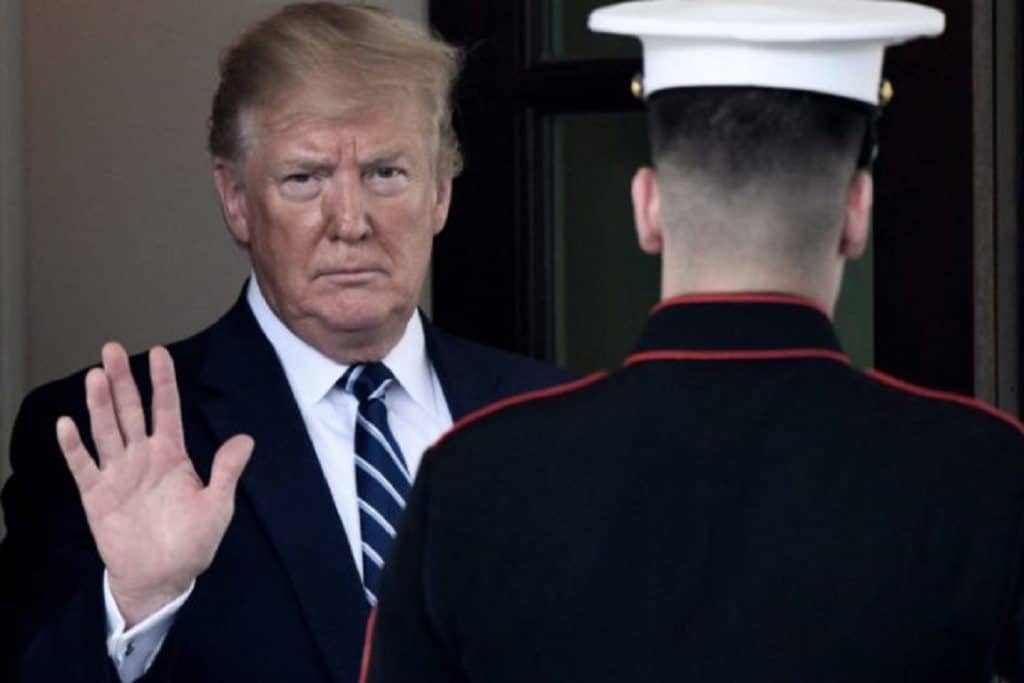By Denis Korkodinov
Donald Trump, unlike his entourage, seems to be gradually losing interest in the anti-Iranian campaign, which does not bring results. In addition, the American leader is looking for opportunities to establish a dialogue with the Iranian leadership, despite the fact that he himself directly or indirectly contributed to the destruction of relations. Nevertheless, Donald Trump still has a chance to correct the situation and begin to establish strong contacts with Tehran.
It is worth noting that now the administration of the White House and the Ayatollah regime occupy diametrically opposed positions, as a result of which they refuse to understand each other. Iran proceeds from the opinion that dialogue with Washington “under coercion” is impossible, whereas Donald Trump’s entourage creates the appearance of an unshakable position that all measures to influence Iran, except for coercion, are ineffective.
However, if we take into account the fact that the nuclear deal was initially broken by the United States, creating grounds for Iranian concern, the White House administration should be the first to take steps to normalize relations with Iran. Such steps suggest, above all, the cessation of American economic pressure on Tehran.
At the same time, Iran should get the impression that there are no winners in its confrontation with the United States, since the parties to the conflict can agree on maintaining equality in relations with each other. In addition, if Tehran publicly refuses to violate a nuclear deal, it will finally restore order and lead to neutralizing the threat of war. Only after this is a dialogue possible between countries.
A key aspect of diplomacy is the selection of an authorized Washington representative who could negotiate with the Ayatollah regime.
Meanwhile, neither John Bolton nor Mike Pompeo, who can only aggravate the situation, provoking Iran to the manifestation of aggression, are completely inappropriate for this role. Participation of Senator Rand Paul in the negotiation process can only create a short-term effect, since the senator, no matter how good the negotiator is, is still not an official representative of the White House, but formally reflects the position of the US Senate, which is not always in solidarity with Donald Trump.
Given the public resonance of the “tanker” wars in the Persian Gulf, it is advisable for Tehran and Washington to conclude a definite agreement on ensuring the safety of navigation in the Strait of Hormuz. Yemen, including the Hussites, as well as Saudi Arabia and the United Arab Emirates, may be acceding to this agreement, which could guarantee not to obstruct the sea routes in the Bab el-Mandeb strait.
In turn, such an agreement would be meaningless without lifting the restrictions on oil transportation by Iran and its allies. Therefore, these restrictions should be immediately lifted. A special place in the negotiation process should be taken by Europe, whose leaders should be free in defining their policy towards Iran. In other words, they should not be dependent on Washington and expose their countries to the threat of an energy crisis only on the basis that the White House administration decided to play war.
Europe has the right to decide for itself whether it should support the dialogue with Tehran and buy oil from it. If this is achieved, the international pressure exerted on Iran will significantly weaken, so that the world will not be on the verge of energy and economic collapse.
The chance to normalize the dialogue with the Ayatollah regime still exists. Both states have repeatedly made it clear to each other that they are ready to abandon military scenarios if they manage to start negotiating. However, the first gesture of goodwill must be made by the United States.
(The views expressed in this article belong only to the author and do not necessarily reflect the views of World Geostrategic Insights)







